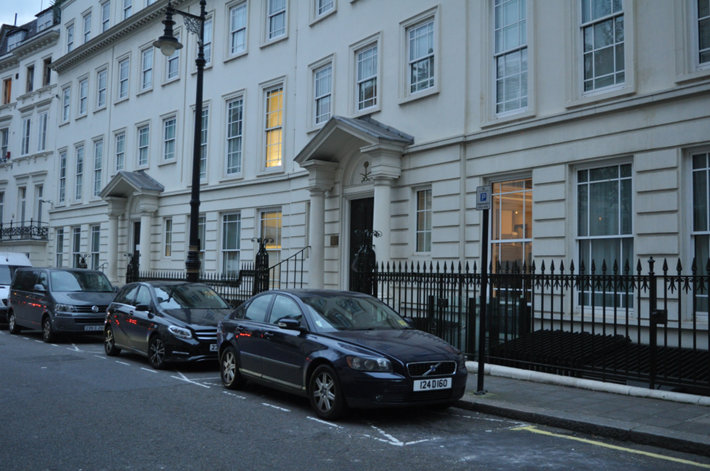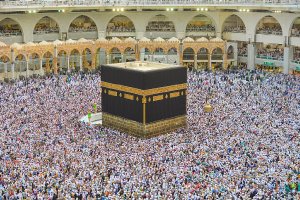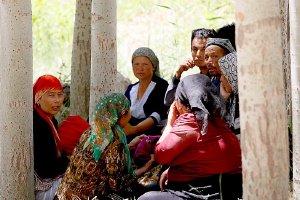Salma al-Shehab, a Shi'a Muslim and a Ph.D. student at Leeds University in the UK, was arrested while on vacation in Sunni-majority Saudi Arabia in January 2021. She was sentenced to serve six years in prison for her social media activity supporting women’s rights.

While serving, she appealed her sentence, and according to the U.S. International Commission on Religious Freedom, “on or around August 9, 2022, the Specialized Criminal Court of Appeal resentenced al-Shehab to 34 years in prison, followed by a 34-year travel ban, for supporting and promoting terrorism, aiding and abetting terrorists or a terrorist entity, using the internet or electronic devices to conduct terrorist activities, spreading false rumors or information with the intent to commit terrorism, sending items that would prejudice public order, and other crimes. Al-Shehab’s religious identity as a Shi’a Muslim is believed to have been a factor in her arrest and harsh sentencing.”
UN High Rights Office spokesperson Liz Throssell stated, “The extraordinarily lengthy sentence adds to the chilling effect among Government critics and civil society at large and is yet another example of Saudi authorities weaponizing the country’s counter-terrorism and anti-cybercrime laws to target, intimidate and retaliate against human rights defenders and those who voice dissent.
“Saudi Arabia must not only release Al-Shehab so that she can rejoin her family, but also review all convictions stemming from free expression against human rights defenders, including women who were jailed after they legitimately demanded reforms of discriminatory policies, as well as religious leaders and journalists. The Saudi Government should also establish a robust legislative framework in line with international human rights law to uphold the rights to freedom of expression and association, and the right of peaceful assembly for all.”
Amnesty International Acting Deputy Director for the Middle East and North Africa Diana Semaan stated, “Salma al-Shehab should never have been convicted in the first place, but to have her sentence increased from six to 34 years following an unfair trial shows that the authorities intend to use her to set an example amid their unrelenting crackdown on free speech. She must be immediately and unconditionally released. The Saudi authorities must allow her to reunite [with] her family and to continue her studies in the UK.”
Amnesty also reports that activists with knowledge of the case state al-Shehab “was held in prolonged solitary confinement for 285 days before she was brought to trial, which not only violates international standards but also Saudi Arabia’s Law of Criminal Procedures. She was also denied access to legal representation throughout her pre-trial detention, and during interrogations.
According to the Washington Post, Shehab is a lecturer at Princess Nourah University in Riyadh, Saudi Arabia, and a Ph.D. student in her final year at Britain’s University of Leeds. She has been researching oral and dental medicine and their application in Saudi Arabia. But she was targeted by Saudi Arabia because of her tweets demanding the freeing of Saudi prisoners of conscience and the abolition of Saudi’s guardianship system that gives men legal control over many aspects of women’s lives.
The European Saudi Organization for Human Rights (ESOHR) called Shehab’s sentence “unprecedented and dangerous, as it is the longest prison sentence issued against female or male activists and might be a step towards further escalation against them. In recent years, many women activists have been subjected to unfair trials that have led to arbitrary sentences, in addition to some of them being subjected to severe torture, including sexual harassment.”
ESOHR writes that the Saudi government has arrested at least 116 women, 60 of whom are still detained. One of the women died in prison but “no one has been held accountable for the abuses women were subjected to in prisons, despite the filing of multiple complaints of torture and ill-treatment.”
The USCIRF and U.S. State Department have designated Saudi Arabia a Country of Particular Concern—a nation engaged in severe violations of religious freedom—along with Burma, People’s Republic of China, Eritrea, Iran, the Democratic People’s Republic of Korea, Pakistan, Russia, Tajikistan, and Turkmenistan.
_______________
From its beginnings, the Church of Scientology has recognized that freedom of religion is a fundamental human right. In a world where conflicts are often traceable to intolerance of others’ religious beliefs and practices, the Church has, for more than 50 years, made the preservation of religious liberty an overriding concern.
The Church publishes this blog to help create a better understanding of the freedom of religion and belief and provide news on religious freedom and issues affecting this freedom around the world.
The Founder of the Scientology religion is L. Ron Hubbard and Mr. David Miscavige is the religion’s ecclesiastical leader.
For more information visit the Scientology website or Scientology Network.


